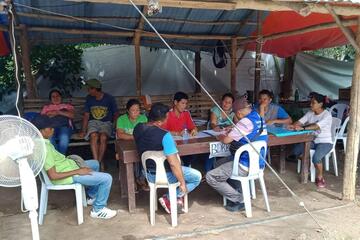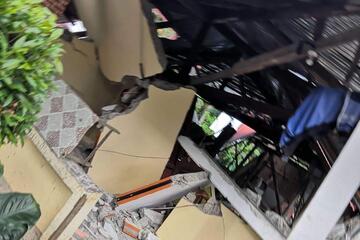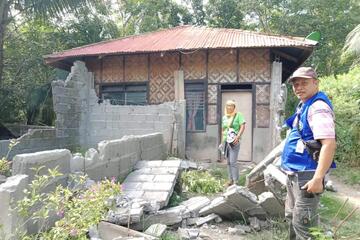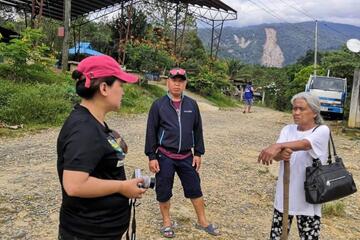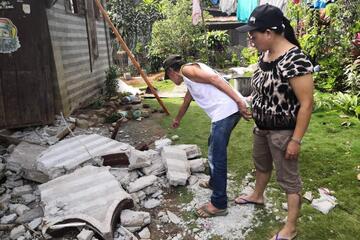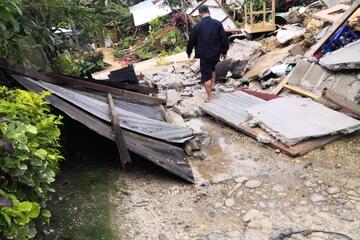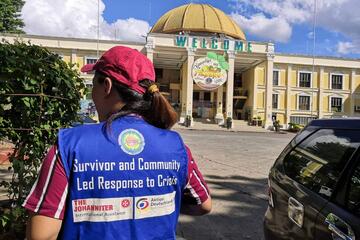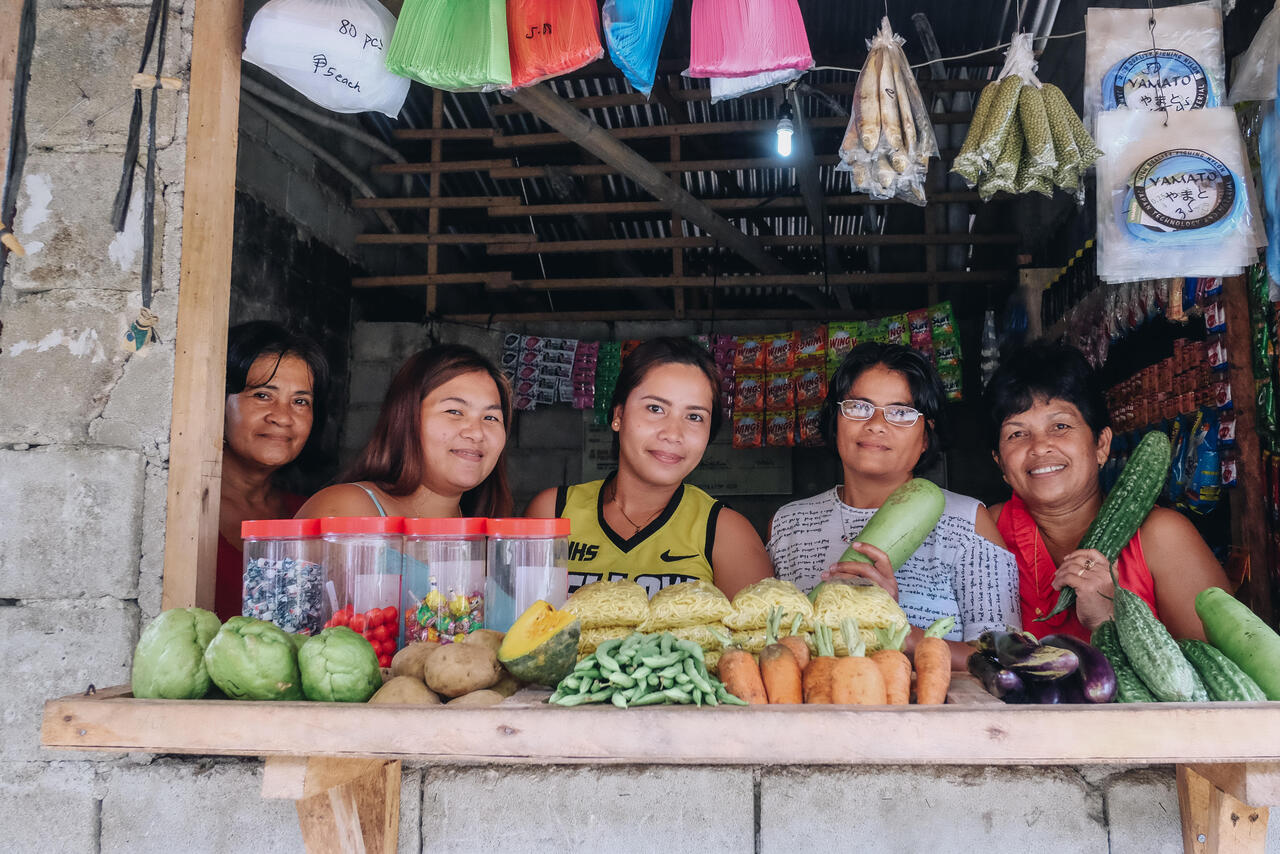Emergency Relief after Earthquakes in the Philippines
Berlin / Mindanao, 06 December 2019
In the aftermath of a series of devastating earthquakes that rocked the Philippine provinces of Cotabato and Davao del Sur, at Mindanao, 231,000 people are affected. A total of 36,687 houses are damaged, 21,324 are completely destroyed. Some of the affected families live in evacuation camps, but thousands of other families stay outside these camps in tents or makeshift shelters. Johanniter and her partner organisation ECOweb provide emergency assistance.
Four earthquakes of more than magnitude 6 and more than 700 reported aftershocks lead to landslides in various regions. Two of the most affected areas were the upland Puroks 6 and 7. They had to evacuate 113 families after rocks, boulders and mud buried their houses.
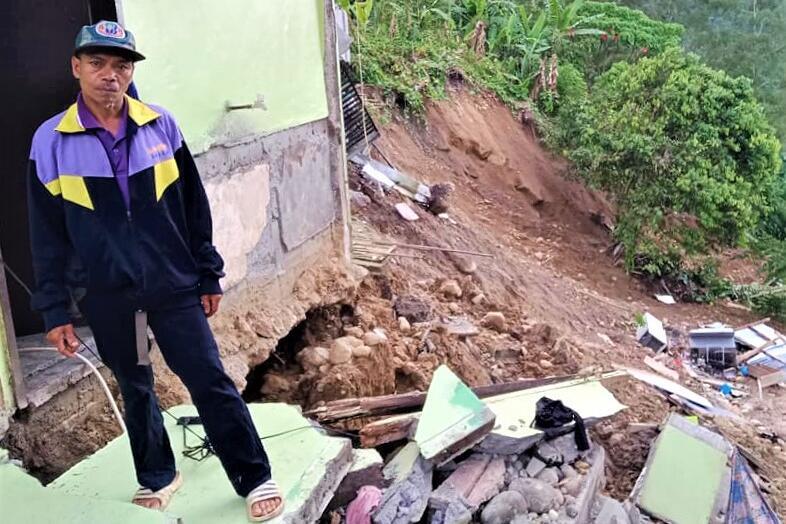
One of those families are Lopito Agya, 46, and his wife Lita. "Few minutes before the temblor, I went inside our house to get something. Good that most of our things were already evacuated few days before," Lita narrates with teary eyes.
I was already in the open ground near our auditorium when the quake occurred and was able to watch our house slide down and buried. I cried but also felt lucky that none of us was inside our house when the incident happened.
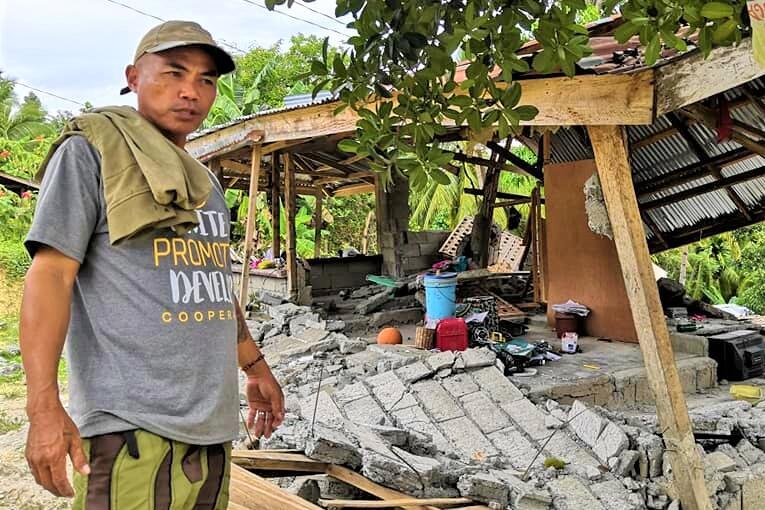
One of the leading fears amongst the affected families, especially those who need to relocate, is to lose their livelihood. Many of them have to overcome their fears and go back to their farms and stores in order to recover their livelihood, even if there could be another earthquake. Others face a total loss of their sources.
Dennis Descallar still remembers the earthquake of October 31. "I was tapping the rubber trees when the earthquake occurred. I was thrown to the ground thus I have to hug the rubber tree, tighter than my hug for my wife," he jokingly recalls.
Since then I did not return to the farm, the rubber saps are now over-dried or damaged.
The 63-year-old Ricardo Masanlo laments how difficult life has been since they could not harvest their crops anymore.
We have survived without money since the October 16 quake, mainly relied on relief goods for survival.
Many had to leave their harvest behind to save their lives. "I also stopped collecting tahite grass for making brooms because I'm scared that the boulders above our farm will fall if there will be another tremor", says Marlyn, Dennis wife.
Lopito faces the same problem.
I am scared to go back to my farm because the rocks might fall anytime but I need to harvest my sayote so that my family could have some cash.
"My worry is where to sell them. I don't think buyers will come here now as they used to do because they are scared of the earthquakes. If I deliver the sayote to the city, I need money for transport. I have none", says Lopito.
Financial and Psychosocial Support
Thanks to donations by "Aktion Deutschland Hilft" (German relief coalition), Johanniter and her partner ECOweb now support 800 most affected families, that are displaced because of the total loss of their houses and livelihoods. There is an urgent need for temporary shelters, food, water, clothing, hygiene kits and medicines. Each community is allocated financial assistance. Utilization and implementation are led mainly by the community, with the project team to provide necessary support and technical assistance. Furthermore there is material aid when materials are not available locally or cost-ineffective to purchase locally. Also psychosocial support will be provided for families and communities in need.
